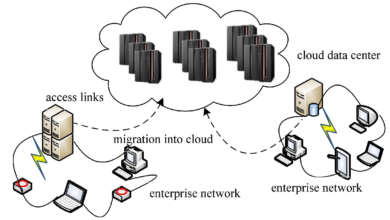Regulatory Compliance in Data Servers
With the rapid digitization of businesses and the increasing dependence on data, regulatory compliance in data servers has become a critical aspect of ensuring security and privacy. Organizations are required to adhere to various regulations, such as the General Data Protection Regulation (GDPR) and the California Consumer Privacy Act (CCPA), to safeguard sensitive information and maintain customer trust. In this blog article, we will delve into the importance of regulatory compliance in data servers, exploring key regulations, best practices, and the challenges organizations face in achieving compliance.
Understanding Regulatory Compliance
Regulatory compliance in the context of data servers refers to the adherence to specific rules, laws, and regulations set forth by governing bodies to protect sensitive data and ensure its proper handling. Compliance is vital for organizations as it not only helps in safeguarding customer information but also mitigates the risk of legal consequences and reputational damage. Non-compliance can result in hefty fines, loss of customer trust, and potential business disruptions.
The Significance of Compliance
Compliance with data server regulations is crucial as it provides a framework for organizations to protect sensitive data from unauthorized access, use, or disclosure. It ensures that organizations handle data in a responsible and ethical manner, respecting the privacy rights of individuals. Compliance also instills trust among customers, assuring them that their personal information is secure and protected.
The Consequences of Non-Compliance
Failure to comply with data server regulations can have severe consequences for organizations. Regulatory bodies have the authority to impose substantial fines and penalties for non-compliance, which can significantly impact an organization’s financial stability. Additionally, non-compliance can result in reputational damage, leading to a loss of customer trust and potential legal actions from affected individuals.
Key Regulations Impacting Data Servers
Data servers are subject to various regulations, depending on the location and industry in which an organization operates. Understanding the key regulations that impact data servers is crucial for organizations to ensure compliance and protect sensitive data.
General Data Protection Regulation (GDPR)
The GDPR, implemented by the European Union (EU), aims to protect the personal data of EU citizens. It applies to organizations that process or store personal data of individuals residing in the EU, regardless of the organization’s location. Compliance with the GDPR requires organizations to obtain explicit consent for data collection, implement robust security measures, and provide individuals with rights regarding their personal data.
California Consumer Privacy Act (CCPA)
The CCPA, enacted in the state of California, sets forth regulations for organizations that collect and process personal information of California residents. It grants individuals the right to know what personal information is being collected and shared, the right to request deletion of their data, and the right to opt-out of the sale of their personal information. Organizations under the scope of CCPA must implement mechanisms to comply with these rights.
Health Insurance Portability and Accountability Act (HIPAA)
HIPAA applies to organizations in the healthcare industry and regulates the handling of protected health information (PHI). Compliance with HIPAA requires organizations to implement comprehensive security measures to protect PHI, ensure the confidentiality, integrity, and availability of data, and establish policies and procedures for data access and disclosure.
Payment Card Industry Data Security Standard (PCI-DSS)
PCI-DSS applies to organizations that handle cardholder data, ensuring the secure processing, transmission, and storage of payment card information. Compliance with PCI-DSS requires organizations to implement strict security controls, conduct regular vulnerability assessments, and maintain a secure network environment to protect cardholder data.
Implementing Data Security Measures
Ensuring the security of data stored in servers is a fundamental aspect of regulatory compliance. Implementing robust data security measures helps organizations protect sensitive information from unauthorized access, breaches, and misuse.
Encryption
Encrypting data is an essential security measure that organizations should implement to ensure the confidentiality and integrity of stored data. Encryption converts data into an unreadable format, and only authorized parties with the encryption key can decrypt and access the information. By encrypting data at rest and in transit, organizations can mitigate the risk of unauthorized access and data breaches.
Access Controls
Implementing strong access controls is crucial to restrict unauthorized access to data servers. Organizations should implement role-based access controls (RBAC) to ensure that only authorized individuals can access sensitive data. RBAC assigns specific roles and permissions to users, allowing them to access data based on their job responsibilities and the principle of least privilege. Regularly reviewing and updating access controls is essential to prevent unauthorized access and maintain compliance.
Regular Security Audits
Conducting regular security audits is vital to assess the effectiveness of data security measures and identify any vulnerabilities or weaknesses in the system. Security audits involve reviewing system configurations, network architecture, access controls, and monitoring mechanisms. By identifying and addressing potential security gaps, organizations can enhance their data server security and ensure compliance with regulatory requirements.
Data Retention and Deletion Policies
Establishing data retention and deletion policies is crucial for organizations to comply with regulations and manage data effectively. Retaining data for longer than necessary increases the risk of unauthorized access and breaches, while retaining data for too short a period may result in non-compliance with legal obligations.
Defining Data Retention Periods
Organizations should define specific data retention periods based on legal requirements, industry standards, and business needs. Retention periods may vary depending on the type of data, its purpose, and the applicable regulations. By clearly defining data retention periods, organizations can ensure compliance and minimize the risk of retaining unnecessary data.
Secure Data Deletion
When data is no longer needed for its intended purpose or legal obligations, organizations must ensure its secure deletion from data servers. Secure data deletion involves permanently erasing data from storage media to prevent unauthorized recovery. Adopting secure deletion methods, such as overwriting data or physically destroying storage media, helps organizations comply with regulations and protect individuals’ privacy rights.
Managing Data Breaches and Incident Response
Despite robust security measures, data breaches can still occur. Having a well-defined incident response plan in place enables organizations to effectively manage data breaches, minimize damages, and comply with regulatory obligations.
Creating an Incident Response Plan
An incident response plan outlines the steps and procedures to be followed in the event of a data breach. It should include a designated incident response team, clear communication protocols, and predefined processes for containment, investigation, and recovery. By having a well-documented plan, organizations can respond promptly and effectively to data breaches, mitigate potential damages, and fulfill their reporting obligations to regulatory bodies.
Notification and Reporting
Regulations often require organizations to notify affected individuals and regulatory bodies in the event of a data breach. Organizations must have a clear understanding of their reporting obligations, including the timeframes for notifying affected individuals and the necessary information that must be included in breach notifications. By promptly notifying affected parties and regulatory bodies, organizations demonstrate transparency and compliance with regulatory requirements.
Ngadsen test2
Third-Party Suppliers and Compliance
Many organizations rely on third-party suppliers for various services, including data storage and processing. However, ensuring compliance with data server regulations becomes more complex when third-party suppliers are involved.
Selecting Compliant Vendors
When selecting third-party suppliers, organizations should prioritize vendors that demonstrate a commitment to regulatory compliance. Conducting due diligence on potential vendors, reviewing their security practices, and assessing their compliance with relevant regulations can help organizations minimize the risk of non-compliance. In addition, organizations should include specific contractual obligations related to regulatory compliance, data protection, and security in their agreements with third-party suppliers.
Managing Vendor Relationships
Establishing a strong vendor management program is crucial for ongoing compliance with data server regulations. Regularly reviewing vendors’ compliance with contractual obligations, conducting audits and assessments, and maintaining open lines of communication are essential to ensure that vendors continue to meet compliance requirements. Organizations should also have contingency plans in place in case a vendor fails to comply with regulatory obligations.
Auditing and Monitoring for Compliance
Auditing and monitoring practices are essential for organizations to ensure ongoing compliance with data server regulations. Regularly assessing and reviewing security controls, data handling processes, and access privileges helps organizations identify potential compliance gaps and take corrective actions.
Internal Audits
Internal audits involve evaluating an organization’s data server infrastructure, policies, and procedures to assess compliance with regulatory requirements. Audits may include reviewing access logs, conducting vulnerability assessments, and interviewing employees. By conducting internal audits, organizations gain insight into areas that require improvement, allowing them to strengthen their compliance efforts.
External Audits
External audits involve engaging third-party auditors to assess an organization’s compliance with data server regulations. External auditors provide an unbiased perspective and can identify compliance gaps that may have been overlooked internally. Organizations should select auditors with expertise in relevant regulations and engage in regular external audits to ensure compliance and demonstrate a commitment to data protection.
International Data Transfers and Compliance
Transferring data across international borders introduces additional complexities for organizations in terms of compliance with data server regulations. Organizations must ensure that data transfers comply with the applicableregulations to protect the privacy and security of individuals’ data.
EU-U.S. Privacy Shield
For organizations transferring data between the European Union (EU) and the United States, the EU-U.S. Privacy Shield provides a mechanism for ensuring compliance with the GDPR. The Privacy Shield framework requires organizations to self-certify their adherence to specific data protection principles, including notice, choice, onward transfer, security, data integrity, access, and enforcement. By participating in the Privacy Shield program, organizations can legally transfer personal data from the EU to the U.S. while meeting GDPR requirements.
Standard Contractual Clauses
Standard Contractual Clauses (SCCs), also known as model clauses, are pre-approved contractual clauses issued by the European Commission. Organizations can use SCCs as a legal basis for transferring personal data from the EU to countries outside the European Economic Area (EEA) that do not have an adequacy decision from the EU Commission. SCCs ensure that organizations commit to protecting personal data during international transfers and provide individuals with enforceable rights and legal remedies.
The Role of Data Protection Officers
Data Protection Officers (DPOs) play a crucial role in ensuring regulatory compliance in data servers. DPOs are responsible for overseeing an organization’s data protection activities, advising on compliance with data protection regulations, and acting as a point of contact for individuals and regulatory authorities.
Responsibilities of DPOs
DPOs are responsible for monitoring an organization’s compliance with data server regulations, providing guidance on data protection policies and practices, and conducting internal audits to ensure adherence to regulatory requirements. They also serve as a point of contact for individuals who have concerns or questions regarding data protection practices, as well as for regulatory authorities during investigations or audits.
Qualifications of DPOs
DPOs should possess a strong understanding of data protection laws and regulations, as well as expertise in data security and privacy practices. They should have the necessary knowledge and skills to assess an organization’s data processing activities, identify compliance gaps, and recommend appropriate measures to ensure compliance. DPOs should also stay up-to-date with evolving regulatory requirements and industry best practices.
Overcoming Compliance Challenges
Achieving and maintaining regulatory compliance in data servers can be challenging for organizations. However, by addressing common compliance challenges proactively, organizations can navigate the complexities effectively.
Keeping Up with Evolving Regulations
Data server regulations are continuously evolving, with new laws and updates being introduced regularly. Staying informed about the latest regulatory developments, attending industry conferences, and engaging with legal and compliance professionals can help organizations stay ahead of changes and adapt their compliance strategies accordingly.
Building a Compliance Culture
Compliance with data server regulations requires a collective effort from all employees within an organization. Building a compliance culture involves educating employees about their roles and responsibilities in protecting data, providing regular training on data protection practices, and fostering a culture of accountability and transparency. By promoting a compliance-focused mindset throughout the organization, organizations can enhance their overall compliance efforts.
Implementing Robust Data Governance Practices
Effective data governance is essential for ensuring compliance with data server regulations. Establishing clear data governance policies and procedures, including data classification, data access controls, and data lifecycle management, helps organizations maintain data integrity, confidentiality, and availability. By implementing robust data governance practices, organizations can minimize compliance risks and streamline their data handling processes.
Engaging External Experts
Engaging external experts, such as legal counsel and compliance consultants, can provide organizations with specialized knowledge and guidance on regulatory compliance. External experts can help assess an organization’s compliance posture, identify potential gaps, and recommend appropriate measures to achieve and maintain compliance. Their expertise can be particularly valuable when navigating complex regulatory landscapes or addressing specific compliance challenges.
Continuous Monitoring and Improvement
Compliance with data server regulations is an ongoing process that requires continuous monitoring and improvement. Regularly assessing and reviewing data protection practices, conducting internal and external audits, and staying proactive in identifying and addressing compliance gaps are essential for organizations to maintain compliance and protect sensitive data effectively.
In conclusion, regulatory compliance in data servers is no longer an option but a necessity for organizations in today’s data-driven world. By understanding the key regulations, implementing robust security measures, and developing comprehensive policies, organizations can ensure the security and privacy of their data while complying with regulatory requirements. Despite the challenges, achieving and maintaining compliance is crucial to building trust with customers, avoiding legal consequences, and safeguarding sensitive information. By staying proactive and continuously adapting to evolving regulations, organizations can navigate the complex landscape of regulatory compliance in data servers successfully.



